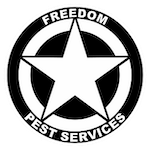In North Carolina, the Structural Pest Control and Pesticide Division of the North Carolina Department of Agriculture & Consumer Services is responsible for regulating pest control services. In order to legally operate in the state, all business owners must obtain a license from this agency. This ensures that businesses adhere to standards and guidelines set by the government to protect consumers and maintain proper pest control practices.
To obtain a license for pest control, you will need to go through a licensing process. This typically involves submitting an application and fee. Additionally, you will be required to provide evidence of having acquired a certain level of experience or training in pest control.
This requirement helps ensure that licensed individuals are competent and knowledgeable in dealing with pest-related issues. The license must be renewed every two years and requires the submission of proof that continuing education has been completed within that time frame.
In addition to having a business license, technicians must also obtain a technician license from the Structural Pest Control and Pesticide Division. This includes taking an exam approved by the department, passing a criminal background check, and providing proof of insurance.
The North Carolina Department of Agriculture & Consumer Services is committed to helping protect the lives, property, and environment from pests. Licensing requirements for pest control services help ensure that only qualified professionals are performing proper pest management treatments in order to reduce risks for people and the environment.
How long is the pest control license valid for?
The validity of a pest control license can vary depending on the state or locality where it is issued. In many places, pest control licenses typically need to be renewed annually. However, it’s essential to check with the specific licensing authority in your area to determine the exact duration of the license and any renewal requirements.
How do I get a pest control license in Charlotte, NC?
Obtaining a pest control license in Charlotte, North Carolina, involves several steps:
- Education: Complete required education and training programs related to pest control, which may include courses on pest biology, pesticide safety, and application techniques.
- Experience: Gain practical experience in the pest control field, often through an apprenticeship or working under a licensed pest control operator.
- Licensing Exam: Pass a state-recognized licensing exam, demonstrating your knowledge of pest control principles and regulations.
- Application: Submit a license application to the North Carolina Department of Agriculture and Consumer Services (NCDA&CS) or the relevant local licensing authority.
- Background Check: Undergo a criminal background check, as some states require.
- Fees: Pay the necessary application and licensing fees.
Process of Obtaining a Pest Control License
Obtaining a pest control license can vary from state to state but generally involves a combination of education, training, examination, and application.
Beyond Licensing: Other Qualities to Consider in a Pest Control Service Provider
While licensing is crucial, there are other qualities to consider when choosing a pest control service provider:
- Experience: Look for providers with a proven track record and expertise in handling specific pest issues.
- Reputation: Read reviews, seek referrals, and research the company’s standing in the community.
- Safety Practices: Ensure the company follows safe and environmentally responsible pest control practices.
- Customer Service: Evaluate the company’s customer service, responsiveness, and willingness to address your concerns.
- Pricing: Compare pricing and services to find a provider that offers value for your investment.
Choose Licensed Pest Control Services for Peace of Mind
Opting for licensed pest control services provides peace of mind. Licensed professionals have the knowledge, training, and legal requirements to perform pest control safely and effectively, reducing the risk of inadequate treatments or harm to your property and the environment.
Always verify the licensing status of a pest control service provider before engaging their services to ensure you receive quality and compliant pest management.
